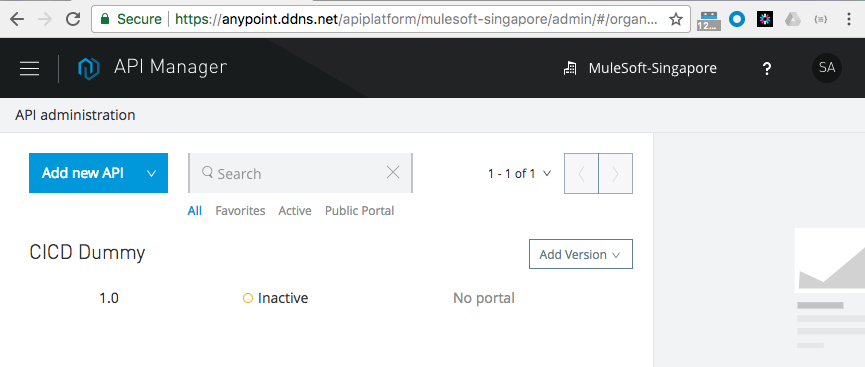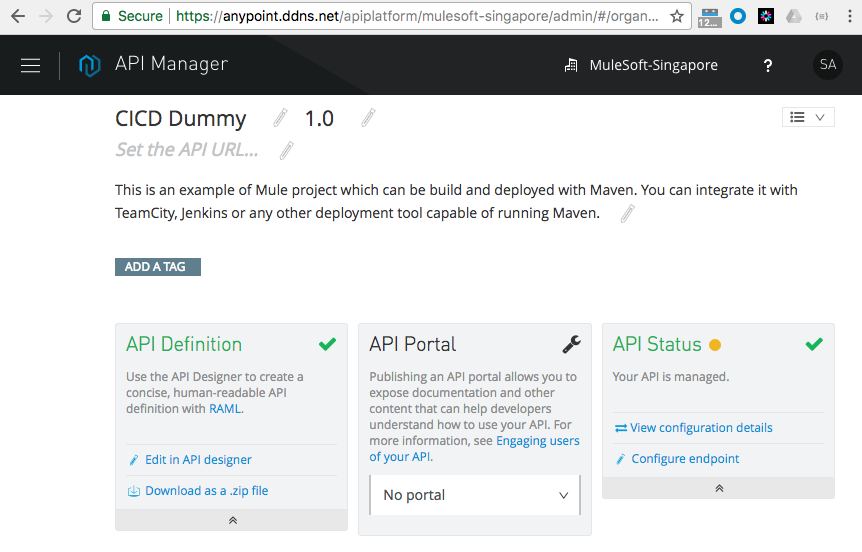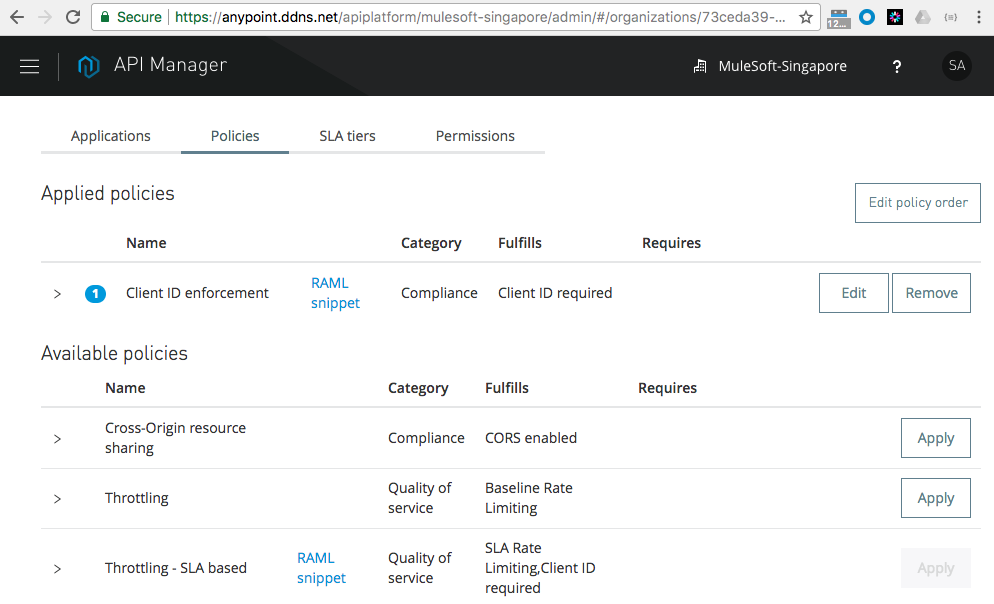This is an example of command line tools to deploy, enable proxy, deploy proxy and apply policies to MuleSoft API deployed on Anypoint Private Cloud Edition.
Please pull the sources from github
Installation of Anypoint CLI
https://docs.mulesoft.com/runtime-manager/anypoint-platform-cli
Installation of Newman
https://github.com/postmanlabs/newman
Gateway Domain in place, for instance:
- MULE_HOME/domains/api-gateway/mule-domain-config.xml
<mule-domain xmlns="http://www.mulesoft.org/schema/mule/ee/domain" xmlns:xsi="http://www.w3.org/2001/XMLSchema-instance" xmlns:http="http://www.mulesoft.org/schema/mule/http" xmlns:tls="http://www.mulesoft.org/schema/mule/tls" xsi:schemaLocation="http://www.mulesoft.org/schema/mule/ee/domain http://www.mulesoft.org/schema/mule/ee/domain/current/mule-domain-ee.xsd http://www.mulesoft.org/schema/mule/http http://www.mulesoft.org/schema/mule/http/current/mule-http.xsd http://www.mulesoft.org/schema/mule/tls http://www.mulesoft.org/schema/mule/tls/current/mule-tls.xsd">
<http:listener-config name="http-lc-0.0.0.0-8081" host="0.0.0.0" port="8081" protocol="HTTP"/>
</mule-domain>
Set up the environment variables:
export ANYPOINT_USERNAME=anthonyrabiaza
export ANYPOINT_PASSWORD=<your password>
export ANYPOINT_ENV=Sandbox
export ANYPOINT_PROFILE=apce-sin
Edit ~/.anypoint/credentials
{
"apce-sin": {
"username": "anthonyrabiaza",
"password": "<your password>",
"organization": "MuleSoft-Singapore",
"environment": "Production",
"host": "anypoint.ddns.net"
}
}
Check the content of deploy_app.txt, it is deploying CICD Dummy Project (configured to work with a Domain)
Run the scripts:
./anypoint-cli-execute.sh cicd-deploy/deploy_app.txt
This step is not automated and be skipped if the Policy Client ID is not used. To manual to this step:
- From API Manager, "Create new Portal"
- View Live Portal
- Request API Access and note down the Client ID and Secret so they can be used in Postman to test the API
Check the content of enable_proxy.txt, it is enabling the Proxy of CICD Dummy API
Run the scripts:
./anypoint-cli-execute.sh cicd-deploy/enable_proxy.txt
Result: you will see a change in API Status block
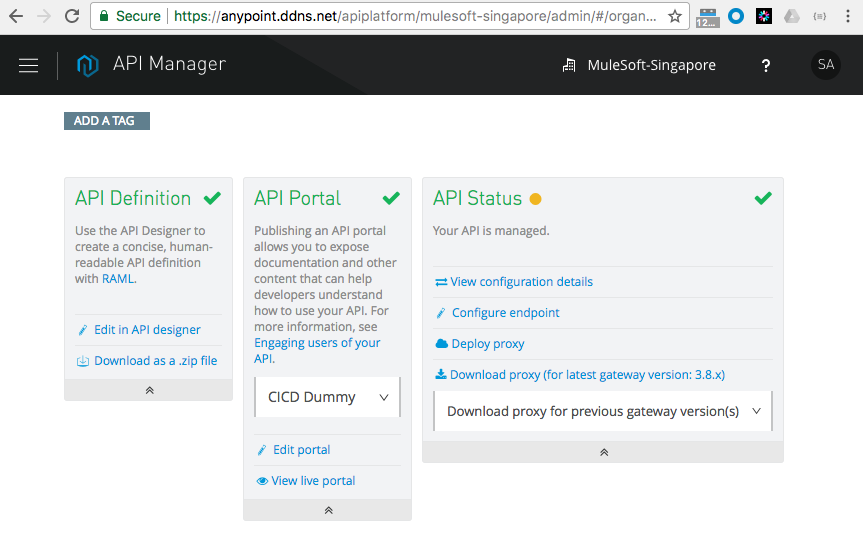
Check the content of deploy_proxy.postman_collection/anypoint_pce.postman_environment, the API call are enabling the Proxy of CICD Dummy API. You can edit them with Postman
The two JSON file can be edit in Postman:
- the first JSON file is Postman collection which consists of 3 API call to:
- Authenticate to Anypoint API
- List APIs to get CICD versions
- Deploy the Proxy on CICD
- the second JSON file is Environment file with configuration related to:
- Authenticate to Anypoint API
- List APIs to get CICD versions
- Deploy the Proxy on CICD
Run the scripts:
./anypoint-api-execute.sh cicd-deploy/deploy_proxy.postman_collection cicd-deploy/anypoint_pce.postman_environment
Result: you will see a change in API Status block
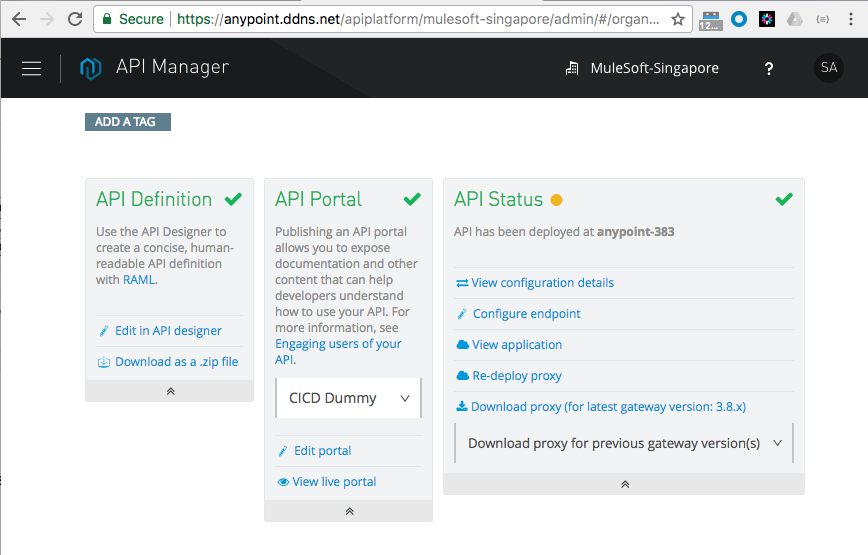
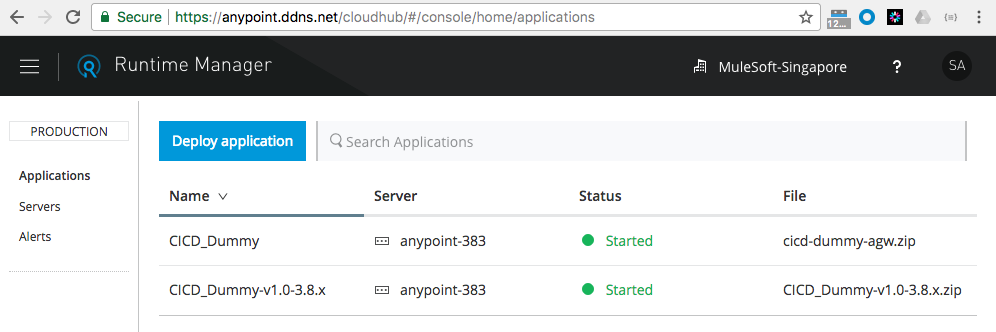
Check the content of deploy_clientid_enforcement.txt, it is applying client_id enforcement on CICD Dummy
Run the scripts:
./anypoint-cli-execute.sh cicd-deploy/deploy_clientid_enforcement.txt
After few second the policy will be apply to the API (Proxy and Application), You can call the API via the Proxy (or directly) and check that it requires a client_id (if you did not link the API and the App):
{
"error": "missing_client",
"description": "client_id is missing"
}

